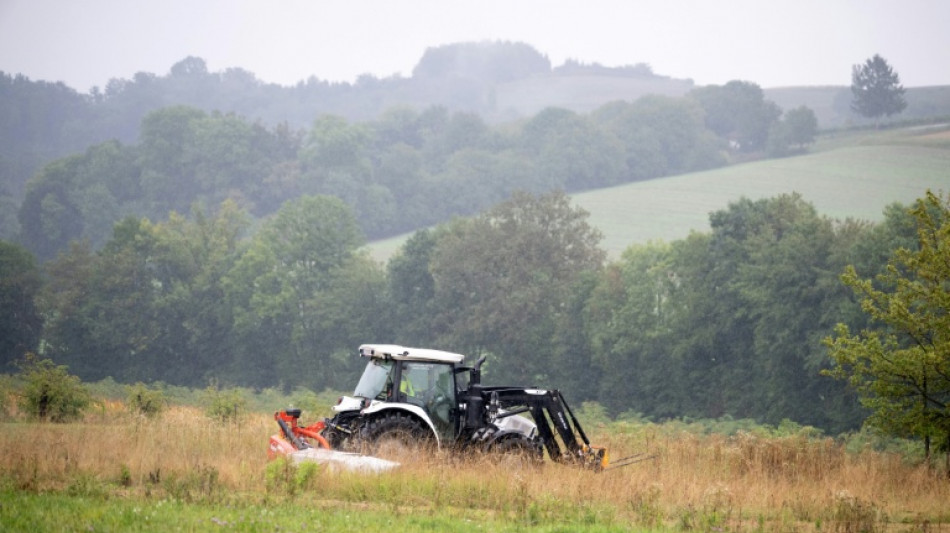
-
 Sabalenka fires Australian Open warning with Brisbane domination
Sabalenka fires Australian Open warning with Brisbane domination
-
In Gaza hospital, patients cling to MSF as Israel orders it out

-
 New protests hit Iran as alarm grows over crackdown 'massacre'
New protests hit Iran as alarm grows over crackdown 'massacre'
-
Svitolina powers to Auckland title in Australian Open warm-up

-
 Keys draws on happy Adelaide memories before Australian Open defence
Keys draws on happy Adelaide memories before Australian Open defence
-
Scores of homes razed, one dead in Australian bushfires

-
 Ugandan opposition turns national flag into protest symbol
Ugandan opposition turns national flag into protest symbol
-
Bears banish Packers, Rams survive Panthers playoff scare

-
 'Quad God' Malinin warms up for Olympics with US skating crown
'Quad God' Malinin warms up for Olympics with US skating crown
-
India eyes new markets with US trade deal limbo
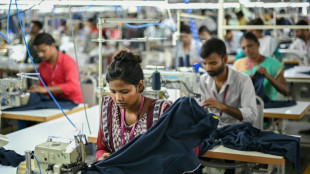
-
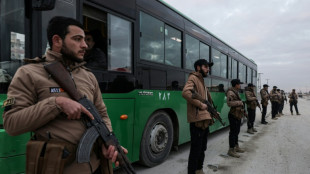 Syria's Kurdish fighters agree to leave Aleppo after deadly clashes
Syria's Kurdish fighters agree to leave Aleppo after deadly clashes
-
New York's Chrysler Building, an art deco jewel, seeks new owner
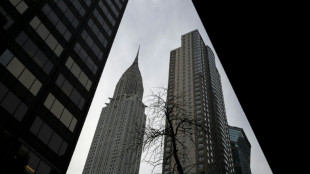
-
 AI toys look for bright side after troubled start
AI toys look for bright side after troubled start
-
AI pendants back in vogue at tech show after early setback

-
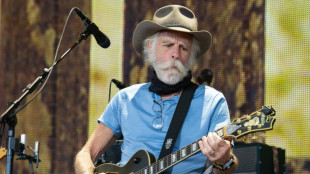 Grateful Dead co-founder and guitarist Bob Weir dies aged 78
Grateful Dead co-founder and guitarist Bob Weir dies aged 78
-
Myanmar votes in second phase of junta-run election
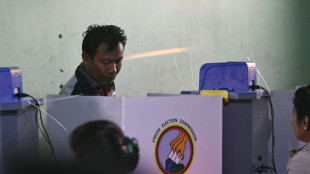
-
 'One Battle After Another' heads into Golden Globes as favorite
'One Battle After Another' heads into Golden Globes as favorite
-
Rams survive Panthers scare to advance in NFL playoffs

-
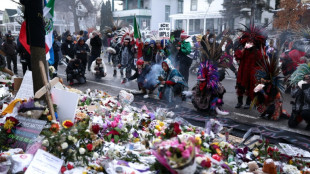 Rallies across US after woman shot and killed by immigration agent
Rallies across US after woman shot and killed by immigration agent
-
Egypt dump out holders Ivory Coast as Nigeria set up AFCON semi with Morocco

-
 Rosenior salutes 'outstanding' start to Chelsea reign
Rosenior salutes 'outstanding' start to Chelsea reign
-
Maduro loyalists stage modest rally as Venezuelan govt courts US
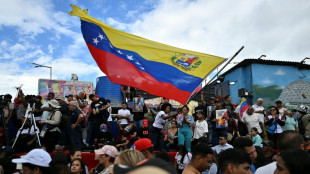
-
 Byrne late penalty fires Leinster into Champions Cup last 16 after 'ding-dong' battle
Byrne late penalty fires Leinster into Champions Cup last 16 after 'ding-dong' battle
-
Rosenior makes flying start as Chelsea rout Charlton in FA Cup

-
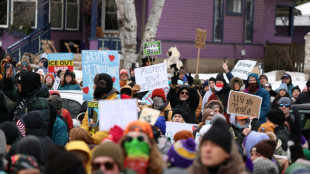 Rallies across US against shooting of woman by immigration agent
Rallies across US against shooting of woman by immigration agent
-
Salah closer to AFCON glory as Egypt dethrone champions Ivory Coast

-
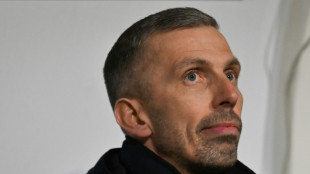 O'Neil ends 'crazy three days' with Strasbourg cup canter
O'Neil ends 'crazy three days' with Strasbourg cup canter
-
Mitchell leads Cavs over T-Wolves

-
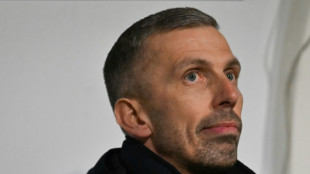 O'Neil ends 'crazy few days' with Strasbourg cup canter
O'Neil ends 'crazy few days' with Strasbourg cup canter
-
Argentina wildfire burns over 5,500 hectares: governor

-
 Byrne late penalty fires Leinster into Champions Cup last 16
Byrne late penalty fires Leinster into Champions Cup last 16
-
Roma beat Sassuolo to close in on Serie A leaders Inter

-
 Villa's FA Cup win at Spurs leaves Frank on the brink
Villa's FA Cup win at Spurs leaves Frank on the brink
-
Osimhen focused on Nigeria glory not scoring record

-
 Undav calls shots as Stuttgart thump Leverkusen
Undav calls shots as Stuttgart thump Leverkusen
-
Venezuelan prisoners smile to hear of Maduro's fall
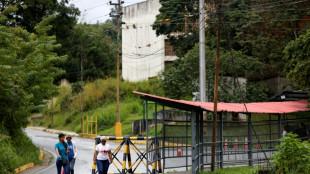
-
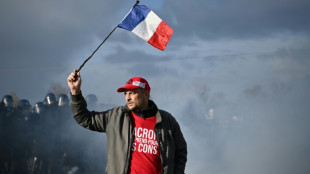 Thousands of Irish, French farmers protest EU-Mercosur trade deal
Thousands of Irish, French farmers protest EU-Mercosur trade deal
-
Kiplimo captures third straight world cross country title
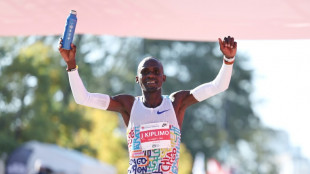
-
 Osimhen leads Nigeria past Algeria into AFCON semi-finals
Osimhen leads Nigeria past Algeria into AFCON semi-finals
-
US urges fresh talks between Syria govt, Kurds after deadly clashes
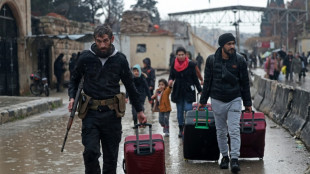
-
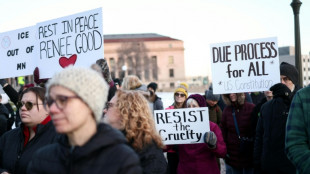 Weekend of US protests after woman killed by immigration agent
Weekend of US protests after woman killed by immigration agent
-
Monaco cling on with 10 men to avoid French Cup shock

-
 Rooney close to tears as brother masterminds FA Cup history
Rooney close to tears as brother masterminds FA Cup history
-
Semenyo scores on Man City debut in 10-goal rout of Exeter

-
 Villarreal sink Alaves to stay in La Liga hunt
Villarreal sink Alaves to stay in La Liga hunt
-
Bristol, Glasgow reach Champions Cup last 16

-
 Freiburg beat 10-man Hamburg to climb to eighth in the Bundesliga
Freiburg beat 10-man Hamburg to climb to eighth in the Bundesliga
-
Venezuela loyalists to rally one week after Maduro's capture
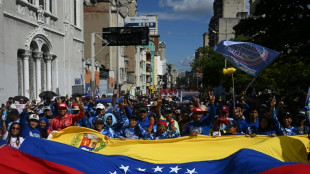
-
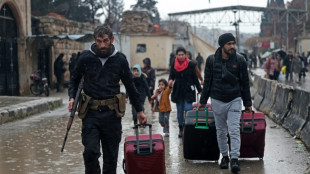 Syrian authorities transferring Kurdish fighters from Aleppo to northeast
Syrian authorities transferring Kurdish fighters from Aleppo to northeast
-
Football: Five memorable FA Cup upsets


How mowing less lets flowers bloom along Austria's 'Green Belt'
On a meadow in southeastern Austria near the border with Slovenia, Josef Hadler is working his tractor to mow several acres of land in a bid to better preserve the plot's biodiversity.
"Yesterday, a buzzard followed me at a distance of only five metres," the cattle farmer told AFP in the municipality of Sankt Anna am Aigen in the Styria province.
Thanks to Hadler's efforts for the local nature conservation association, endemic species of flora and fauna that have disappeared elsewhere have been able to survive on the 15 hectares (37 acres) of protected land he manages.
Located where the Iron Curtain once separated Austria from the former Yugoslavia, the fields near the Slovenian border are rich in biodiversity, precisely because the area used to be a no-go zone during the Cold War.
It is also part of the wider "European Green Belt" along the former Iron Curtain, a corridor of interconnected wildlife havens that stretches 12,500 kilometres (just over 7,700 miles) from Norway to Turkey.
"No one would dare to build their house right on the border (with Slovenia), which therefore remained green," explained Johannes Gepp, president of the local environmental protection organisation Naturschutzbund, which buys up plots of land from farmers.
Hadler mows the meadow only once or twice a year. The former owner, who had cultivated maize there, willingly sold the dry land 15 years ago to acquire another plot offering a better yield.
"We've gone from a monoculture to 70 to 80 species per 100 square metres" by eliminating fertilisers and reducing the mowing frequency, said Naturschutzbund's managing director Markus Ehrenpaar.
Hadler usually mows his fields five times a year for silage bales and hay to feed his livestock.
But he observed that mowing more frequently prevented flowers from growing, while mowing less often allowed many native species to flourish or even return.
Among them are the great burnet -- the only plant on which two different species of butterfly feed exclusively -- or the venomous nursery web spider.
Maintaining the fields is essential, as it prevents the proliferation of grasses to the detriment of wild flowers.
- 'Wonderful natural gems' -
Hadler receives compensation for his work and can harvest the hay, which he uses as litter for his livestock.
According to Andrea Pock, the mayor of Sankt Anna am Aigen, the "wonderful natural gems" also have an educational value for biology lessons.
"A form of gentle tourism has developed," the 46-year-old mayor said, adding that "many people come to see the flowers and observe the insects".
Signs nearby recount the dark past of the fortified and mined border, which once sought to deter people from behind the Iron Curtain to cross into the West.
In the present, crossing points that allow for genetic mixing of plants have been created to ensure the long-term survival of such dense and diverse areas.
The effort costs millions of euros each year as "land is very expensive," said Gepp.
The region, the government and the European Union have all contributed financially to this costly revival.
And the stakes are high: Austria is home to 1,300 kilometres of the "Central European Green Belt", which it shares with the Czech Republic, Slovakia, Hungary and Slovenia.
But at present, only a third of it is protected environmentally.
E.Qaddoumi--SF-PST



